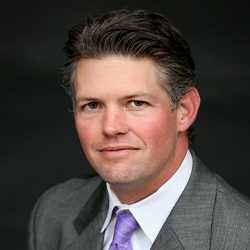testing solutions
COVID-19 Testing Services for Educational Institutions
Protect your staff and students on your campus and mitigate virus spread by providing onsite COVID-19 tests before the school year. AnyPlace MD offers COVID-19 testing services in schools and campuses.
what's the plan?
Why Test for COVID-19
It is important to keep the campus safe and free from COVID-19. We recommend testing 1-5% of students, employees and faculty weekly. Isolating positive people early will help prevent hot spots and keep your class rooms humming. Status of individual people will vary based on their various activities.
more information
explore the models

They will all have to meet minimum safety standards to reopen. If they’re going to reopen at all, they’re going to need to have a testing plan, a contact tracing plan, a quarantine plan, things of that sort.
Janet Napolitano, University of California System President
There are different testing models to consider
According to Dr. Anthony Fauci, Director of the National Institute of Allergy and Infectious Diseases,
- “One of the models [is] test all the students before they come in, just so that you know what the baseline of infection is. Test them both [with PCR & Serology tests] to see if they’re infected with tests for the virus, as well as see if they had been previously exposed.”
- “First baseline and then you do surveillance testing where you don’t test every single person, but every week or two you selectively test a representative sampling, because the chances of there being asymptomatic infection in a cohort of young, healthy individuals is much greater than the chance in the general population.”
Establish a baseline by performing an initial onsite COVID-19 PCR test & Serology session for your entire campus.
- Periodic Testing (1-5% of the campus weekly)
- Repeat onsite COVID-19 PCR test sessions to determine if outbreaks are occurring
- Daily temperature checks at the beginning of each day to identify symptomatic people.
If there are positives for any of the above, people should be referred to their primary care physician for further evaluation, testing, treatment, quarantine and/or clearance.
Testing is an important tool to get back to
school in the Fall
Protecting your campus, students, faculty, and the community around you during the COVID-19 pandemic.
the key to success
planning infection mitigation
Testing and isolation program ahead of travel to campus in order to prevent infected staff and students from traveling to the campus.
Public health safety intervention that tracks symptom monitoring feedback of the population.
Running program that tracks symptom monitoring feedback of the population.
Contact tracing capability when students or staff are found to be infected in order to understand who was exposed and take action to test and potentially isolate them.
Once individuals have been confirmed to be infected with COVID-19, it is important to be able to seperate them from the un-infected population in order to prevent further spread.

Recommended Infection Mitigation
Public health safety intervention of limiting close contact with others outside your household in indoor and outdoor spaces. Since infected people can spread the virus before they know they are sick, it is important to stay away from others when possible, even if you—or they—have no symptoms. Social distancing is especially important for people who are at higher risk for severe illness from COVID-19.
Temperature measurement is a important tool of the assessment used to determine if a person has an elevated temperature potentially caused by a COVID-19 infection. These devices have many benefits, but they must be used by trained personnel in order to get accurate readings.
Public safety intervention of limiting close contact with others outside your household in indoor and outdoor spaces. Since people can spread the virus before they know they are sick, it is important to stay away from others when possible, even if you—or they—have no symptoms. Social distancing is especially important for people who are at higher risk for severe illness from COVID-19.
The high numbers of students, faculty and staff members may make a traditional day impossible under social distancing protocols that public health officials say are necessary as the pandemic persists. The math just doesn’t work when students must stay six feet apart from one another and their teachers. That’s why a mash-up of integrated, online schooling and on campus classroom instruction— is likely to be prevalent this fall.
Have a program in place that provides daily surface sanitation using FDA-approved disinfectants.
Have hand sanitizer products available for use in all office spaces, classrooms and entry/exit points.
Provide access to teleheath platforms that allow infected individuals to receive care without in person visits.
Fill out the test request form to get started. One of our specialists will follow up with a consultative call and help you craft a plan to keep your students, faculty and staff safe this school year.





